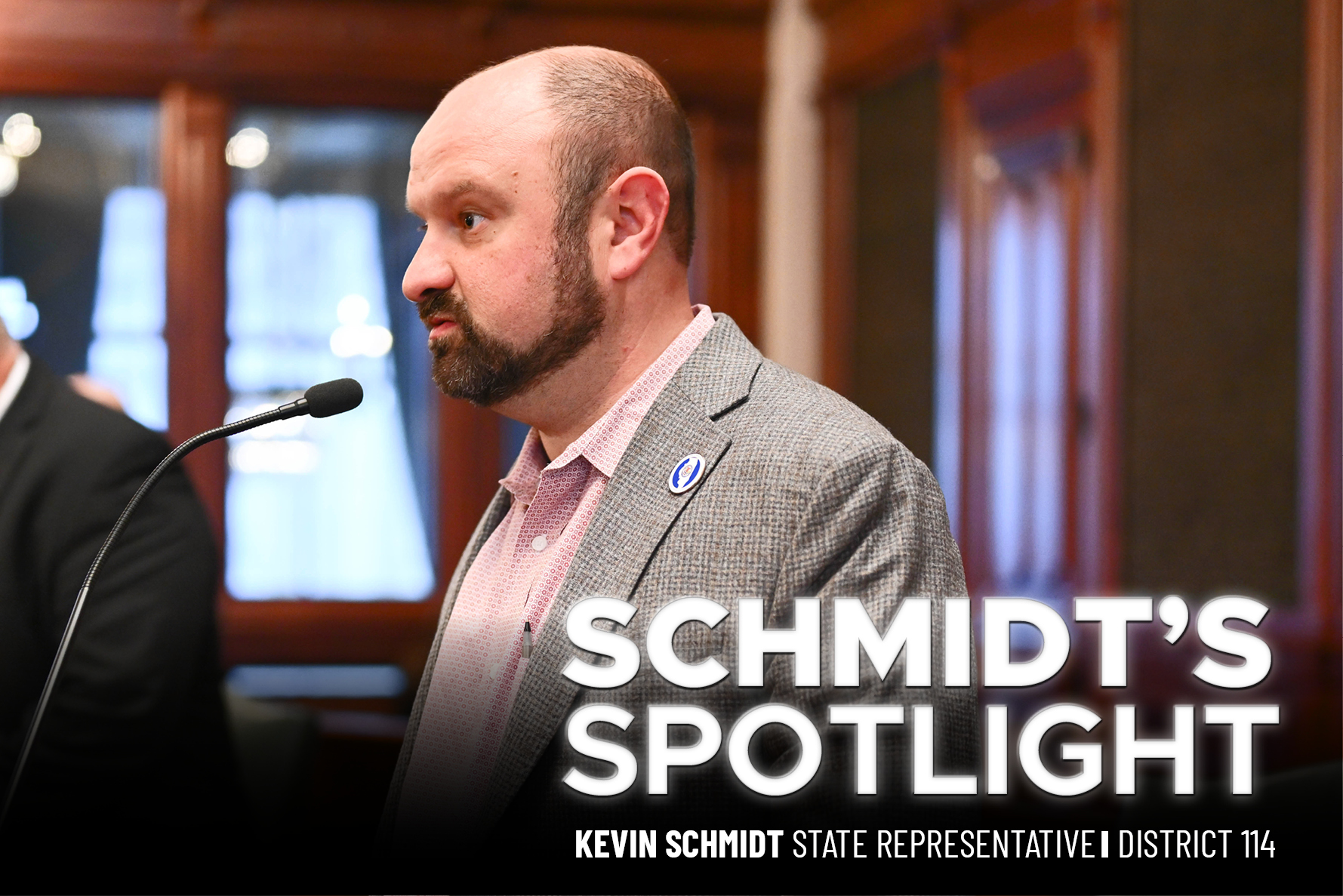Good afternoon! It has been a very busy couple of weeks, I returned from two weeks of veto session in Springfield and decided now is a good time to update you. I’ll give you an update on what I’ve been up to, veto session, and some other news you may find interesting.
PAY RAISE DONATION
I donated my pay raise this month to Catholic Urban Programs’ Thanksgiving Food Drive. This is part of my ongoing promise to donate back the pay raise the General Assembly voted themselves (I voted NO) to a local charity or food pantry. If you or someone you know would like more information on local food pantries, please click here.

VETO SESSION
Illinois General Assembly concludes quiet veto session. House Republicans took the November 2024 veto session as an opportunity to welcome new lawmakers to the Illinois State Capitol. These included newly elected state representatives who will take the oath of office in the 104th General Assembly in January 2025.
Little legislative action was taken during the recently concluded Veto Session. Governor Pritzker and the Democratic supermajority punted controversial legislative proposals to the January lame-duck session of the current General Assembly.
House Republicans stand united in opposing a Lame Duck session. Out-of-touch Democrats do not need more time to dream up bad legislation that will hurt Illinois families. We’re ready to hit the ground running in the 104th General Assembly.

CORRECTIONS
Republican Lawmakers Want Answers on IDOC Drug Exposures. State Representative Charlie Meier joined State Representatives David Friess and Bill Hauter to address growing concerns on harmful substances entering Illinois Department of Corrections facilities across Illinois.
“We should be taking every step necessary to protect our prison workers and inmates,” said Rep. Meier. “We’ve requested a hearing to address these concerns, and they’ve been ignored.”
“Until we can figure out what’s going on, we should pause the physical mail process,” Meier suggested. “Our constituents who work in these facilities are telling us that part of the problem is physical mail. Let’s have a hearing and figure out what is going on and how these substances are entering our prisons.”
Meier called out IDOC Acting Director Latoya Hughes, who has not yet been confirmed as Director. “I’m calling on Acting Director Hughes to join me at any one of the facilities that have experienced these drug exposures. Together, her and I will go through the mail. If she is confident that the drugs are coming in elsewhere, she should have no problem doing this with me. At the very least, she owes it to the citizens of Illinois to provide some answers and solutions to this issue, preferably through a committee hearing. It’s imperative that this hearing takes place before Acting Director Hughes’ confirmation hearing.”
The prison workers and inmates in Reps. Meier, Friess, and Hauter’s districts are not the only ones who are being exposed. When exposure to these unknown substances occurs, healthcare workers, family members, and other innocent individuals are at risk.
“At the end of the day, no matter how these drugs and substances are entering our facilities, we need answers and solutions. Why won’t Acting Director Hughes work with us to get to the bottom of this? All we want to do is keep our constituents safe,” Meier noted.
FIREARMS
Atty. Gen. Raoul asks appellate court to stay federal ruling striking down firearms ban. The decision by federal District Judge Stephen McGlynn found that the so-called “Protect Illinois Communities Act,” a January 2023 law that purports to ban almost all private-sector possessions of certain groups of firearms and ammunition supplies in Illinois, is unconstitutional. The 168-page decision struck down the law in its entirety, citing various case judgements from the United State Supreme Court and other courts that draw broad boundaries around the “right to bear arms” enshrined in the Second Amendment to the U.S. Constitution.
As with all federal district court decisions in Illinois, the decision can be appealed to the Seventh Circuit of the United States Court of Appeals, the Chicago-based federal appellate court. Illinois Attorney General Kwame Raoul, a Democrat, has filed an appeal. His appeal supports the law and opposes the judicial decision. As a move affiliated with the overall appeals process, the attorney general has also asked that the district court’s permanent injunction against the enforceability of the Protect Illinois Communities Act be stayed. If the appellate court grants the stay, the controversial law will remain in place, for now.
Criticisms of the new Illinois gun ban are widespread. Lawmakers who voted “no” against the new law, which included most Illinois House Republicans, pointed out that the definitions of banned firearms and ammunitions supplies set forth in the new law are vague and potentially unenforceable. They also, like Judge McGlynn, point towards the explicit right to bear arms contained in the federal Bill of Rights, which outranks all State laws.
